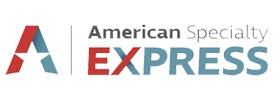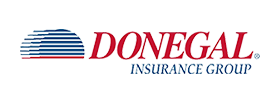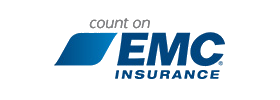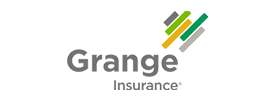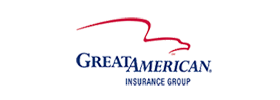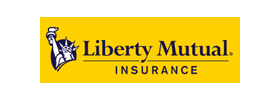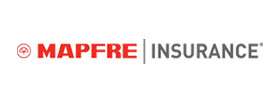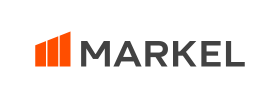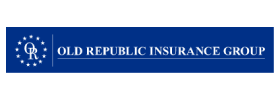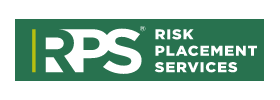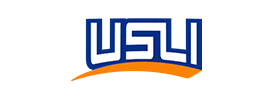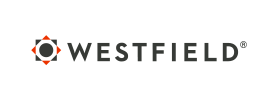When buying your first home, it’s important to purchase home insurance, but knowing what to buy can be a challenge. Here’s how to decide…
For first time homeowners, going through the process of searching for, choosing, and closing on a house is stressful enough. But even after all of that, there’s still more work to be done.
You probably already know that you need a home insurance policy, but do you know where to start? There are so many options, and each insurance company has a different set of offerings. What kind of coverage do you need, and how much?
When buying your first home, the answers to these kinds of questions may not be readily apparent.
Fortunately, Gessel & Associates Insurance Agency can guide you to the perfect policy for your new home. Keep reading to get the lowdown on how to choose the right home insurance policy for you.
Home Insurance 101: What’s in a Standard Policy?
If you’re a complete novice when it comes to homeowners’ insurance, keep reading. We’ll give you a primer on what a typical home insurance policy should cover.
The most common home insurance policy is called HO-3 (Special Form), with more coverage being HO-5 (Comprehensive Form) and less coverage being HO-1 (Basic Form) or HO-2 (Broad Form). In short, a standard HO-3 policy will cover most natural disasters, theft, and accidents.
A standard policy includes dwelling coverage, which means damage to the physical structure of your home. If a hurricane causes a tree to fall on your roof, the insurance company will replace it. It also covers damage by accidental house fires, even if a fire is due to negligence on your part.
Dwelling coverage also extends to damage caused by others, in certain situations. If a thief breaks in through your windows, a standard policy will pay to replace them and whatever else was damaged due to their entry.
Depending on your policy, insurance may not cover damage that could have been prevented with regular maintenance. For example, if you don’t have your furnace maintained for 10 years, and then it causes harm to your property, that may not be covered.
If your home becomes unlivable due to covered damage, a typical insurance policy will pay for you to stay in a hotel.
A good rule of thumb to keep in mind is that you should purchase enough insurance to rebuild your home if, for some reason, it was razed to the ground. This is referred to as replacement cost coverage.
Besides the physical structures of your house, a standard policy also covers personal property, also known as contents coverage. If a burglar nabs some of your electronics, your insurance will pay to replace them, or reimburse you for their value. The value will be established as part of the claim process.
Finally, standard home insurance will protect you from liability if someone is injured on your property. If a guest falls down the stairs and breaks their legs, they may sue you to recoup the cost of their medical bills.
Depending on the details, the insurance company will either arrange a payout or will defend you legally. This is an especially important facet of home insurance that you should consider when choosing a policy.
Home Insurance and Personal Liability
Insurance doesn’t just pay medical bills. If someone alleges that they were injured on your property, they may sue you. Insurance will shield you from assuming personal liability in these lawsuits.
The threshold for filing a personal injury lawsuit against someone else is low. New homeowners should be aware of this when they invite guests into their home, they are taking on some risk. The laws that say what you are and aren’t responsible for can differ by state, so you should speak to your agent about that.
Homeowners can be sued for many types of injuries – a dog bite, a slip and fall on ice, or even damage to someone’s personal property, like their phone. Outside of bodily harm or injury, there are number of other ways liability can come into play, your agent can advise you of these other exposures to risk. Having the right liability insurance protects you from paying for someone else’s medical bills, or other damages.
Adding Additional Coverage Beyond a Standard Policy
You should consider additional coverage for your policy if you store a large amount of valuable items in your home, or if you collect expensive goods, such as rare coins.
To protect them from theft or damage, you can add a rider to your insurance policy for specific items, often called a policy endorsement. It’s like a mini-insurance policy backpacked onto your regular insurance that’s only for the item named within it.
There a few different types of riders, with the most common being for expensive jewelry, antiques and art, furs, or rugs. If you own any items like this, be sure to ask your insurance agent to go over your options to add a rider to your policy.
Another type of insurance policy with extra coverage is called an umbrella policy. This type of policy extends beyond paying for damages. It covers the homeowner to a greater extent with regards to lawsuits and can add extra coverage if you have additional liability at home, such as a pool or trampoline.
You should also consider whether you have any increased liability with regards to guests. Some breeds of animals and some kinds of exotic pets are not covered under normal policies. If you’re worried about your pet injuring someone in your home, you should discuss this with your agent, and possibly add extra insurance to cover that animal specifically.
Finally, consider the area in which you live. Some climates are more prone to a certain type of natural disaster, such as sinkholes or tornadoes. You may also want to consider adding extra coverage to mitigate damages by specific events that are common in your locale.
What Isn’t Covered By Home Insurance
Although home insurance can be quite customizable to fit your needs, there are limitations to what you can insure.
Standard policies won’t cover certain natural disasters such as earthquakes or floods, so if you think you may need that coverage, discuss it with your agent and consider adding a rider, as discussed above.
Insurance won’t cover standard maintenance, like having an HVAC technician come out to inspect your furnace and A/C unit. Routine upkeep and maintenance is considered the owner’s responsibility, and is done at your discretion. However, if you let routine maintenance fall by the wayside and there’s an incident as a result, your insurance may not cover that. This is because the problem was likely preventable and may have been caused by your neglect, rather than an accident.
Under this same principle, most policies won’t cover incidents like a termite infestation, rust, mold, and other issues covered under what would be considered general home upkeep or maintenance.
Finally, other large-scale disasters such as war or nuclear incidents are typically not covered under most policies.
What Does Home Insurance Cost?
Home insurance works similarly to healthcare in that you have a deductible that you must meet before the policy will kick in and pay for any further costs. This could be a stated dollar amount, such as $1000, or a percentage of your home’s total coverage, usually around 1 or 2%.
The average homeowner pays about $1000-$2000 per year for their insurance, but different levels of coverage can cost more or less than that. Price is also highly variable by state due to different regulations and risks.
For non-standard policies and riders, the costs will vary. Specific coverage such as floods may have a higher deductible, such as 10% of the total insurance amount.
Choosing Your Insurance Agency
Your home is your sanctuary, and for new homeowners, choosing the right home insurance policy is crucial. Where to buy home insurance is one of the most important decisions you’ll make as you embark on this new part of your life.
Gessel & Associates Insurance Agency knows that this process can be highly complicated. There’s no one insurance policy that ticks the boxes for everyone. We take your needs seriously and have a wide range of policies available to meet your unique needs.
Gessel & Associates is an independent agency, meaning we represent many different insurance companies. Because of this, our agents are knowledgeable about the entire insurance field, not just about one company’s policies.
Even if you’re not sure where to start, Gessel & Associates can help steer you towards the perfect policy for your home. Reach out today to schedule a consultation with Gessel & Associates today so you can protect what is most important.






